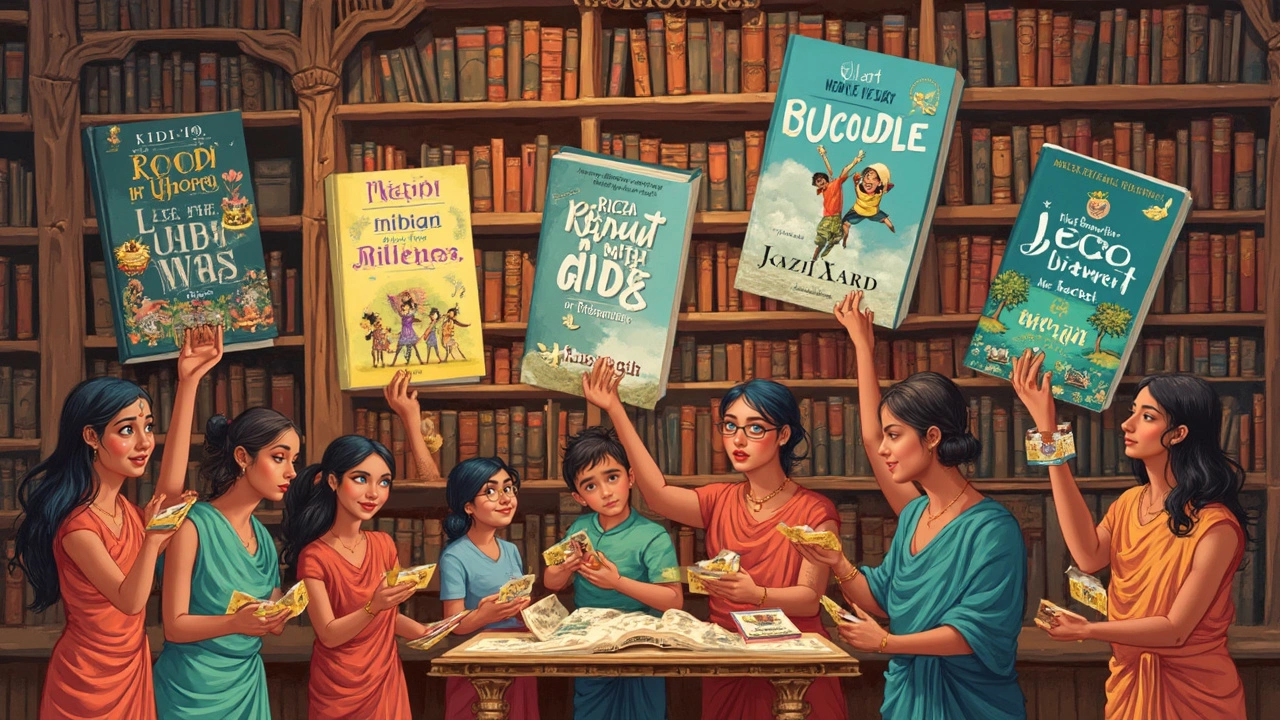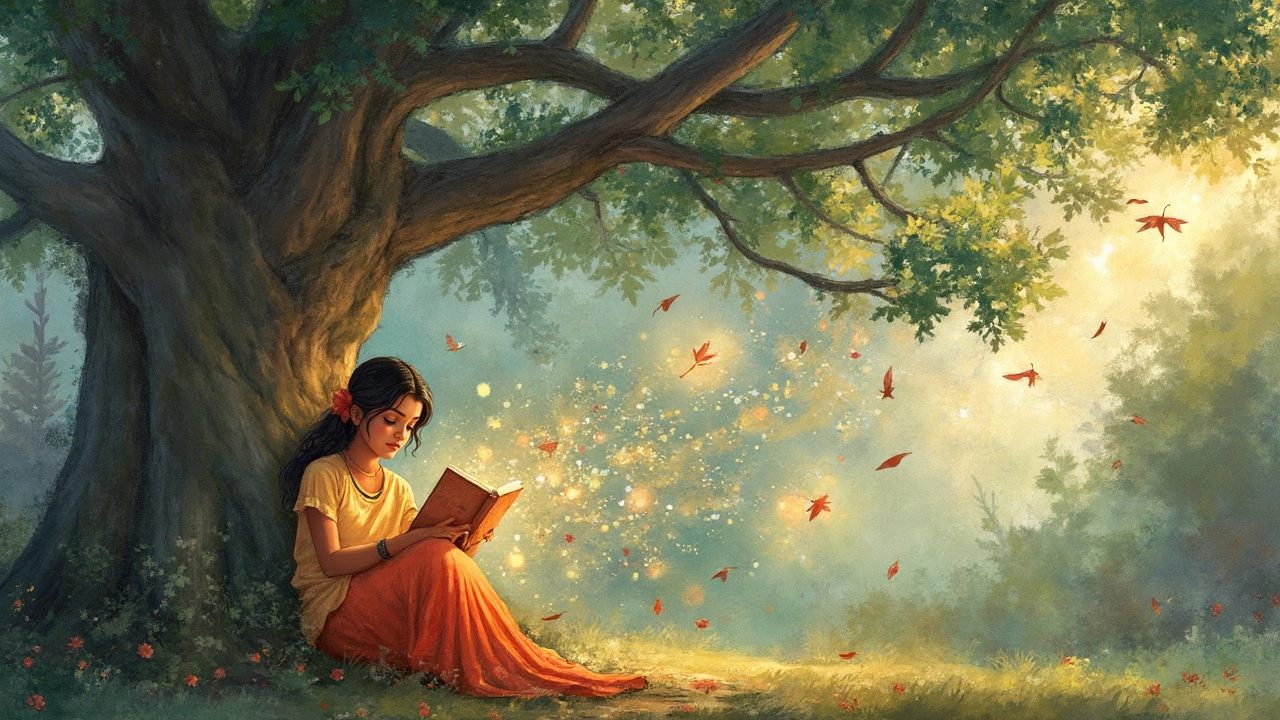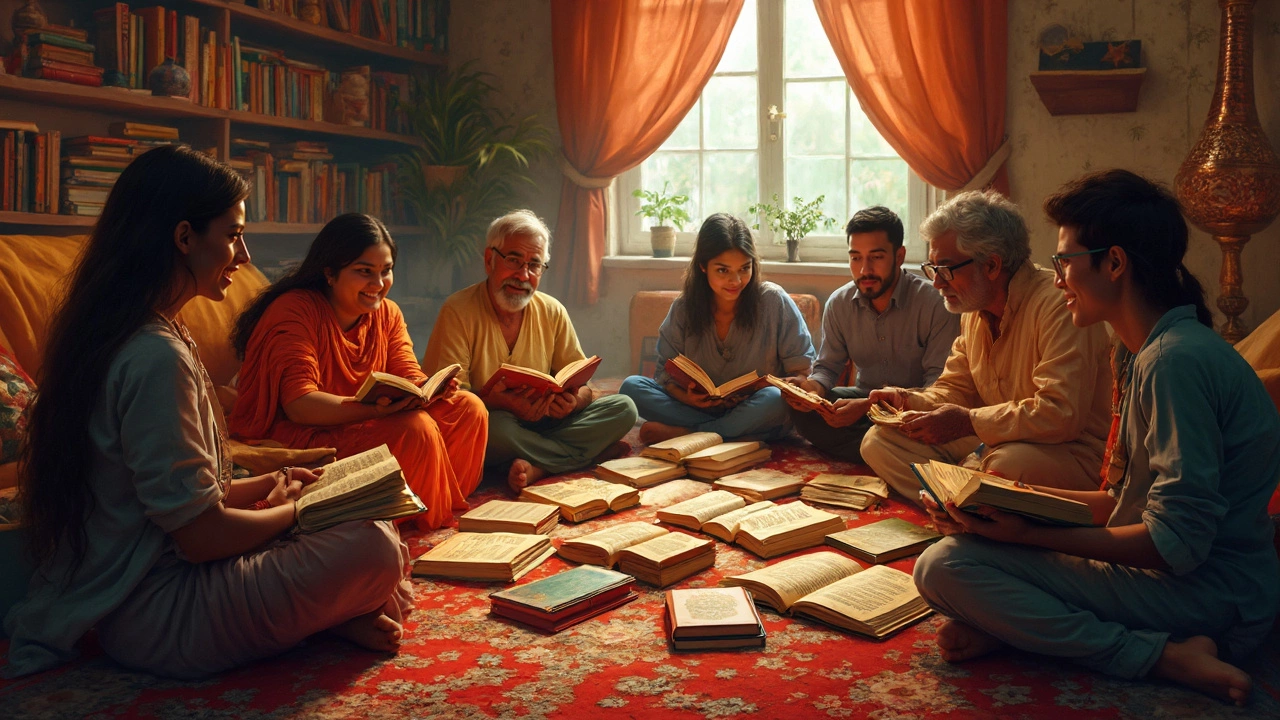Ever wondered why some books keep popping up on everyone’s shelf, passing from hand to hand, generation to generation? It’s not just good writing. There’s something magnetic about these titles—stories, ideas, or characters that stick with us. If you’re getting into reading, or just looking for your next great pick, knowing what draws so many people to the same books is a huge shortcut.
These aren’t just any bestsellers. We’re talking books that have racked up millions—or even billions—of readers worldwide. Some are classics you probably got assigned at school, while others might surprise you with their global reach. Honestly, one of them even outsells Harry Potter every year. If you want to get a taste of what keeps folks, from teens to grandparents, turning the pages, this list is for you.
- Why Book Popularity Matters
- The Big Names: Top 10 Most Read Books
- How These Books Shaped Culture
- Why People Keep Reading Them
- Tips for Building Your Own Reading List
Why Book Popularity Matters
If you’ve ever wondered why the same books keep ending up on every recommendation list, you’re not alone. Book popularity isn’t just about hype or marketing. When a book becomes popular all over the world, it usually means there’s something special happening—solid storytelling, relatable characters, or ideas that click with a ton of people.
Getting your hands on the world’s most read books can do more than fill up your shelf. Popular books often shape culture, spark conversations, and might even change how people think. Harry Potter, for example, inspired a whole generation to pick up reading again. The Bible, still the top of the charts, has influenced pretty much every corner of society and art for centuries. And don’t forget The Lord of the Rings, which made fantasy massive and set the tone for so many shows and movies people love today.
If you want a peek at some real numbers, check this:
| Book Title | Estimated Copies Sold | Languages Published |
|---|---|---|
| The Bible | 5+ billion | 700+ |
| Harry Potter Series | 600+ million | 80+ |
| The Lord of the Rings | 150+ million | 40+ |
These numbers aren’t just trivia—they show the insane reach these stories have. Picking up a popular book means jumping into something that millions—sometimes billions—of people have experienced. That’s a community on its own, and it’s a great way to start conversations, join debates, or just understand what keeps everyone hooked in different parts of the world.
- Popular books are easier to find at libraries or bookstores.
- There’s always someone to talk to about the story.
- If a book’s stood the test of time, there’s probably a reason.
So, when you reach for a book that’s been read by just about everyone, you’re tapping into something a lot bigger than just a weekend read. You’re joining a crowd—and maybe even a tradition.
The Big Names: Top 10 Most Read Books
You’d expect classics like “1984” and “To Kill a Mockingbird” somewhere in the mix, right? But a lot of people are shocked by just how wide the net gets with the most read books worldwide. We’re not just talking about English novels—this list spans continents and centuries. Here’s a quick look at the main contenders, based on estimated sales, translations, and global recognition. If you’re making a bucket list for reading, these are hard to skip:
- The Bible — By far, the Bible outpaces every other book, with more than 5 billion copies spread around the world. For context, the Guinness World Records calls it the best-selling book of all time.
- The Qur’an — The holy book of Islam is another top contender, widely read and distributed in many languages, with billions of copies printed.
- Quotations from Chairman Mao Tse-tung (The Little Red Book) — This one surprises people. Chinese readers alone have made Mao’s Little Red Book a fixture, especially in the second half of the 20th century. Estimates put the number of printed copies at 1-1.5 billion.
- The Lord of the Rings by J.R.R. Tolkien — You’d think this was just for “geeky” fantasy fans, but Tolkien’s trilogy has sold over 150 million copies, and it keeps gaining new readers every year.
- The Harry Potter Series by J.K. Rowling — Seven books, over 600 million copies sold, with translations into more than 80 languages. Every new generation seems to rediscover Hogwarts.
- The Alchemist by Paulo Coelho — This short novel has been translated into 80+ languages, selling more than 65 million copies. It grabbed the record for most translated book by a living author.
- The Diary of Anne Frank — Not just assigned reading. Anne’s words resonate with readers of all ages and backgrounds. It’s been translated into 70+ languages.
- The Hobbit by J.R.R. Tolkien — Tolkien makes this list twice. The Hobbit has around 100 million copies sold since its first release back in 1937.
- And Then There Were None by Agatha Christie — Crime doesn’t pay, except for Christie’s publisher. This murder mystery has over 100 million copies sold globally.
- Dream of the Red Chamber by Cao Xueqin — One of China’s most famous novels, it’s tremendously influential, especially across Asia. Some experts say it’s the most widely read book among Chinese speakers after the Bible.
If you want an outside opinion, here’s how researchers put it:
“Books like the Bible and the Qur’an aren’t just religious texts; they’re historical documents that have shaped cultures, laws, and daily life for billions,” says professor David Crystal, an expert in global literacy studies.
Looking at these titles, you get a real mix: faith, adventure, struggle, mystery, and even a bit of magic. The fact that the same titles pop up in so many countries shows just how good stories travel. If you’re itching to start somewhere, pick something off this list—the odds are, millions of others have gotten hooked by the exact same story.

How These Books Shaped Culture
These top titles haven’t just taken over bookshelves—they’ve actually changed the way people think, talk, and even act. Let’s look at a few concrete ways these massively popular books have left their mark.
Take the Bible, for example. No other book has influenced language, law, and art quite like it. Even if you’ve never read the whole thing, you probably use phrases from it all the time—like “the blind leading the blind” or “good Samaritan.” It’s been a source for movies, songs, and big debates since, well, forever.
Or look at “Harry Potter.” When J.K. Rowling introduced Hogwarts, it kicked off a global obsession. The wizarding world shaped a whole generation’s sense of adventure and friendship. It even sparked major sales in everything from scarves to theme parks. Fun fact: In 2012, around one in fifteen people on Earth owned a Harry Potter book.
The influence isn’t just about fun and fantasy. “1984” by George Orwell pretty much gave us the word “Big Brother” for government overreach. If you hear someone talk about “Orwellian” situations, that’s straight from his story about constant surveillance. Same with “To Kill a Mockingbird”—this novel pushed tough conversations about race into the mainstream in the U.S. back in the 1960s, and schools still use it to get students thinking about fairness and standing up for what’s right.
And don’t forget the most read books in religious and philosophical circles, like the Quran or “The Analects of Confucius.” They shaped entire cultures, laying the groundwork for how people pray, make decisions, and treat other people.
- Common phrases and metaphors from the Bible and Shakespeare’s works are part of daily speech for millions.
- “Harry Potter” made midnight book releases and cosplay mainstream activities.
- “The Lord of the Rings” changed how people see fantasy, setting the standard for epic stories in movies and video games.
These books aren’t just words on paper—they’ve set trends, changed laws, and started traditions. When something lands on the list of the most read books, you can pretty much bet it’s influenced more than just bedtime reading habits.
Why People Keep Reading Them
There’s a reason the same titles come up whether you’re asking for recommendations in a coffee shop or scrolling through book forums. These most read books stick around because they hit something deep, universal, or just plain gripping. Take “Harry Potter,” for example. J.K. Rowling didn’t just write about wizards—she built a world that makes people want to belong, even after they’ve passed childhood.
Some books tackle big ideas—like “To Kill a Mockingbird.” Sure, it’s a staple in classrooms, but adults keep coming back for its take on justice, empathy, and bravery. The issues don’t get old. And don’t forget books like “The Alchemist.” Paulo Coelho’s story nails that feeling of chasing your dreams, which let’s face it, never really goes away.
Another big reason is relatability. Readers see bits of themselves in characters, or they spot problems they’ve faced. George Orwell’s “1984” keeps finding new readers because, as crazy as it sounds, people see patterns in their world that remind them of the book’s themes.
And it’s not just about serious stuff. Entertainment is a big deal too. The adventure in “The Lord of the Rings” or the twists in “The Da Vinci Code” keep readers hooked, generation after generation. My uncle’s had a battered copy of Tolkien on his shelf since the ‘70s, and he still flips through it every year.
If you’re curious why these books stick, check this out. The New York Times once quoted Stephen King saying,
“Great stories are a kind of truth, and they don’t stop being true just because times change.”
That’s probably the best way to sum it up. The situations may be different, but the truth in the stories—whether it’s about hope, fear, love, or the messiness of life—keeps folks coming back. It’s like comfort food for your brain.
Here’s a quick breakdown of what keeps readers returning:
- Strong characters – You find heroes, villains, and everyday people you care about.
- Relatable themes – The big questions never get old.
- Stories worth revisiting – Each read gives you something new.
- Buzz and community – Joining the conversation is half the fun (hello, book clubs!).

Tips for Building Your Own Reading List
Creating a personalized reading list is like prepping your playlist for a road trip. You want variety, something that keeps you interested, but you also don’t want to overwhelm yourself. If you’re hoping to dip into the most read books or just find recommendations that won’t bore you, it helps to mix classics, fresh releases, and stuff that matches your taste.
- Start with your interests. If you love mysteries, toss in an Agatha Christie. If fantasy is your thing, try "Harry Potter" or "The Lord of the Rings." Your reading list will actually get read if it’s full of books you’re into.
- Balance classics and modern hits. Something like "To Kill a Mockingbird" is often called timeless for a reason, but it can be more fun when you mix it up with newer books like "The Hunger Games."
- Check out what’s popular globally. Some books are famous in certain countries that you may never hear about in your circle. For example, "The Alchemist" by Paulo Coelho has sold over 150 million copies worldwide and is loved in unexpected places, from Brazil to Iran.
- Don’t ignore different genres. Even if you think you’re not a sci-fi person, throwing in something like "1984" adds variety, and you might just find a new favorite.
- Lean on curated lists and friends’ suggestions. Websites like Goodreads release "most read" lists every year. Also, don’t underestimate recommendations from friends—sometimes they know your taste better than an algorithm.
A lot of serious readers set a realistic goal. According to a 2023 Pew Research study, the average adult in the U.S. reads around 12 books per year, but the median is actually closer to four. So, if you’re not flying through a book every week, you’re not alone. Start small and build up.
| Book Title | Author | Estimated Copies Sold |
|---|---|---|
| Don Quixote | Miguel de Cervantes | 500 million+ |
| Harry Potter series | J.K. Rowling | 600 million+ |
| The Lord of the Rings | J.R.R. Tolkien | 150 million+ |
| The Alchemist | Paulo Coelho | 150 million+ |
A good tip—don’t stress about finishing every book. If you’re 50 pages in and it’s not clicking, move on. There’s no prize for suffering through a book you hate. Track your progress using something simple like your phone’s notes app or a website like StoryGraph if you want insight into your habits. Most of all, make your list yours. It’s like picking snacks—you want things you’re excited about, not stuff you feel guilty for skipping.

